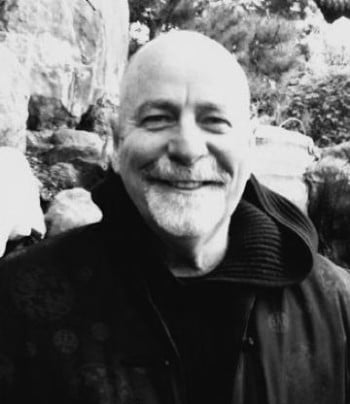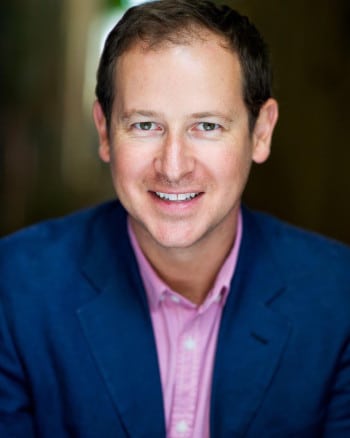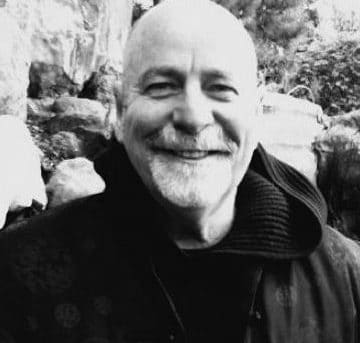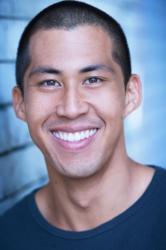Kevin Jackson on the importance of continued training and the Hub – A Gym for Actors
Kevin Jackson is gargantuan.

Widely recognised as one of Australia’s most sought after acting coaches, for 29 years Kevin has taught at NIDA, the nation’s most prominent acting school, and risen to the helm of that lofty institution as its Head of Acting.
The list of Kevin’s past students who have achieved cultural prominence is, like a fine beard, illustrious and silky. It includes people like Cate Blanchett, Sam Worthington, Essie Davis, Sarah Snook, Ryan Corr, Elizabeth Banks and Baz Luhrman to name but a few.
In his time as an acting teacher and director, Kevin has held classes all over the world, most notably at the American Conservatory Theatre in San Francisco where he has taught for 14 years, as well as at the Actor’s Centre in Sydney since his retirement from NIDA in 2011.
Over the past few years, Kevin has banded together with a group of likeminded acting coaches, to establish the Hub Studio. A place where professional actors can continue their training with some of the industry’s finest acting teachers. Chris Fung has the interview:
So you’re an actor. You have just spent 3 long hard, financially difficult years training in a full-time drama school, shouldn’t your studies have equipped you with the skills to enter the professional stage? How do you justify the expense in continuing to train?

Drama schools tend to produce the sense that acting is the most important part of being cast – but it’s not. There’s an article that has recently been released (The Guardian) that says that Acting ability may only account for 7% of the reason that anybody gets a job. Looks, economy, ability to not cost a production company one cent more than they’re prepared to budget.
When you leave Drama school you live in a kind of ideological space – it’s like another university course when you enter the industry. Working in-field in a film you suddenly realise that acting is a completely objective choice, you can’t allow yourself to be emotionally subjective – you have to be able hit that mark, to hold your head at that angle – you can’t pick up that prop at a different time, you have to be aware of the continuity of the shot. If you don’t want to be edited out of a film – you’ve got all these other technical skills which you need to know rather than just the general sense of what Stanislavski thinks. You need to think your way through your work not just feel it.
It can’t be based on what you feel like today. That can’t happen.
When you walk in that audition room door – the last thing that they are thinking about is whether you can act. The first thing is that when you walk in the door you look like the person they want for the part. Two, that you have a professional knowledge in the technical requirements for how a film studio works. And three that your American dialect is impeccable – that they won’t have to redub, or re-record things in a studio. If you can act, it’s a bonus to that company. But what they’re really after is – will girls be fans, will boys want to be you. Acting talent is the last thing.
Are you an economical proposition for the company?
People like Judy Davis, Mel Gibson, even Cate Blanchett – when they got their first work in America – it was as a result of their work in a film in Australia. However Indie they are here – Hollywood producers look at it and they can say they know how to hit a mark, they know how to work with the camera, they know how to tell a story that won’t be filmed in chronological order, they won’t cost me budget-wise because of retakes.
How did your association with Oliver Wenn and The Hub Studio come about? And what sets The Hub apart from other performing arts institutions in Sydney?

5 or 6 years ago, actors came back from LA for pilot season and they asked me if I would give them some classes. 2 years later, Oliver Wenn suggested that we set up a Hub – not an acting school – but a gym for professional actors. We are here to provide a resource that allows Professional actors the chance to practice their craft. In a studio situation, not in a crash and burn situation.
What we find is that people who leave the Hub generally book work so much faster – and it just has to do with the fact that they are in practice – and they arrive at the audition more confident because they have been working on their instrument and working on their skills. So it’s just a matter of keeping yourself fit by doing work in a non-threatening way.
The Hub is unique in Sydney – what Oliver and I are working towards is not to allow the Hub to become a drama school. We cater towards professionals and so classes are vetted by submission – actors send in a CV, some may have gone to Drama School, others may have never trained but have a long list of professional experiences.
If acting is the last thing that matters – why go to such enormous expense in training this 7% skill?
[pull_left]You must find the keys that turn the locks to your particular talent[/pull_left]
Because if you want to work at the top level, once you get past fast television and B grade films – if you want to get to the heights of Cate Blanchett, James McAvoy and Eddie Redmayne and all of these people, then you need to be able to act.
There are people getting cast today who are models, but they will never work at the top level. They can barely put two words together, but they look great.
Australian Actor Ryan Kwanten is a great example. You look at the first season of True Blood and here’s this guy who is completely bankable in terms of looks, He’s sexy, he will get fan-mail, he’s had some years on fast television so his skills are up. You look at the first season and you go – mmm he’s an “okay” actor, but he’s smart – he’s learnt how to act and so you get to season 2 and it’s okay. You get to season 3 – and suddenly you’ve got this hit show because the acting now matches the quality of the writing.
Acting is a bonus to the company – they’re quite happy to toss it after one season – because they’ve got their money back from advertising etcetera etcetera – Season 2 they’re saving money because they’ve got the sets and they don’t have to recast. Season 3 – they’re making piles of money AND they’re getting a critical response. If you just want to be on film and television, then your career will fail once the wrinkles come. If you have the ambitions to have career longevity then you need to train and keep in practice. Good looks are an entry point but they are not king.
Is it easier to teach amateurs or professionals how to act?
Nobody can be taught how to act, all I can do is teach somebody how to act more reliably. There’s no difference between an amateur performance and a professional performance – in fact I’ve often seen amateur performances that knock you out over-and-above some of the professional work you see – the difference is, the professional can repeat it every night, or repeat it for 48 takes and the amateur actor can’t do that because they don’t have the appropriate training.
Emotion is always present, but it’s there for you to manage. Bad acting is when the performer is having a great time, using the performance as therapy and then asking us to admire them – whereas your job as an actor is to get an audience to act/create with you. The audience should be working as hard as the actor for the cathartic experience to be truthful.
How would you describe your teaching style? There are many different schools of acting – how do you personally judge what is a better technique and which a worse one?
Hopefully, each actor is unique. Because of their uniqueness they will respond to certain things in a way that is unique to them. If I introduced you to pure Stanislavski I might go “Waaaooow, that’s fantastic”, but you won’t because you won’t get it. Similarly, if we do Meyerhold, you might get Meyerhold and I won’t.
So, my idea is and what we used to do at NIDA was to present a range of techniques, traditional and contemporary to allow the actor to develop their own creative habit.
You must find the keys that turn the locks to your particular talent.
Kevin Jackson is just one of the many industry teachers who provide drop-in classes and class series at The Hub Studio, if you’re interested in finding out more about these or any other classes, head on over to thehubstudio.com.au. Class sizes are generally small and by application only, so booking in ahead of time is recommended.
Kevin also keeps a blog where he reviews Theatre, Dance and Concerts around Sydney. You can find that here: kjtheatrediary.com




